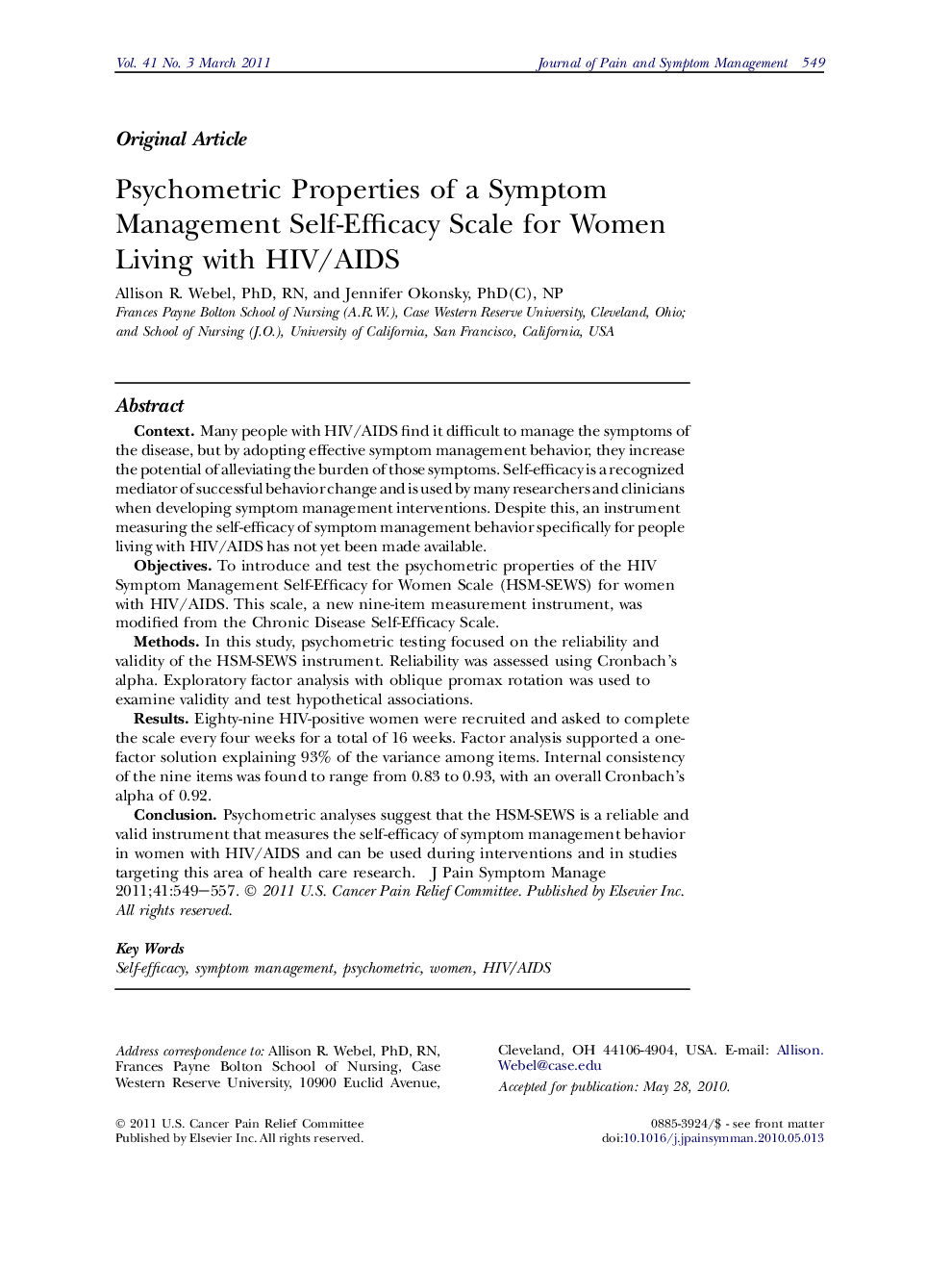| Article ID | Journal | Published Year | Pages | File Type |
|---|---|---|---|---|
| 2730260 | Journal of Pain and Symptom Management | 2011 | 9 Pages |
ContextMany people with HIV/AIDS find it difficult to manage the symptoms of the disease, but by adopting effective symptom management behavior, they increase the potential of alleviating the burden of those symptoms. Self-efficacy is a recognized mediator of successful behavior change and is used by many researchers and clinicians when developing symptom management interventions. Despite this, an instrument measuring the self-efficacy of symptom management behavior specifically for people living with HIV/AIDS has not yet been made available.ObjectivesTo introduce and test the psychometric properties of the HIV Symptom Management Self-Efficacy for Women Scale (HSM-SEWS) for women with HIV/AIDS. This scale, a new nine-item measurement instrument, was modified from the Chronic Disease Self-Efficacy Scale.MethodsIn this study, psychometric testing focused on the reliability and validity of the HSM-SEWS instrument. Reliability was assessed using Cronbach’s alpha. Exploratory factor analysis with oblique promax rotation was used to examine validity and test hypothetical associations.ResultsEighty-nine HIV-positive women were recruited and asked to complete the scale every four weeks for a total of 16 weeks. Factor analysis supported a one-factor solution explaining 93% of the variance among items. Internal consistency of the nine items was found to range from 0.83 to 0.93, with an overall Cronbach’s alpha of 0.92.ConclusionPsychometric analyses suggest that the HSM-SEWS is a reliable and valid instrument that measures the self-efficacy of symptom management behavior in women with HIV/AIDS and can be used during interventions and in studies targeting this area of health care research.
